Friends of Croatia: British Embassy - Brexit an Opportunity to Deepen Already Good Relationship
May 20, 2021 - The fifth article in the series "Friends of Croatia: British Embassy", saw TCN reporter Ivor Kruljac sit down with the UK Ambassador Andrew Dalgleish and discuss all things regarding diplomatic relations between the UK and Croatia. Diplomatic relations are, overall, really good and developing well, with Brexit being a challenge, but also an opportunity for deeper bilateral cooperation between the two European nations.
The diplomatic relations between the UK and the Republic of Croatia were formally established on June the 24th, 1992.
Almost 29 years later, I found myself in front of the Ambassador's residence and being warmly greeted by Snježana Vukić, the British Ambassador's advisor for communications. If you're inclined to think in stereotypes, you would expect a cup of tea, but instead, the cup of coffee with the creamy flat white texture turned out to be a much better beverage during the interview—both for me and for the Ambassador.
''We can sit wherever you like'', said Ambassador Andrew Stuart Dalgleish as he welcomed me inside the premises. A warm, kind, competent communicator that evened out the serious conversation about diplomatic topics with occasional humorous remarks to ensure both had an enjoyable and informative talk. The pins of both British and Croatian flags on his left coat lapel turned out to be a visual clue to the notion the friendship the UK and Croatia has long since held is still going well.
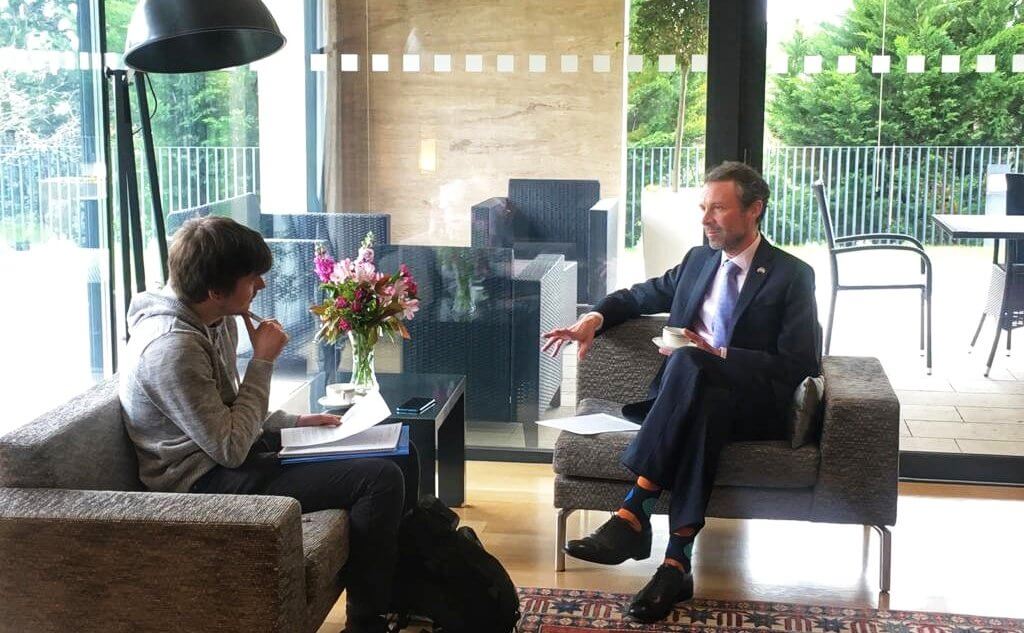
TCN reporter Ivor Kruljac with Ambassador Andrew Dalgleish © British Embassy Zagreb
Croatia and UK sharing western values
Andrew Dalgleish has served the UK as the Ambassador in Croatia since July 2016. He graduated with First Class Honours Degree in European Law at the University of Warwick, which included a year at Bordeaux University IV studying French Law. From 1998-1999 he worked in the Department of Social Security. His extensive knowledge of European law saw him work in UKREP (the United Kingdom Permanent Representation to the European Union) from 1999 to 2004, firstly as the Second Secretary for Social Affairs, and from May 2001 as a First Secretary for the Environment.
That same passion for the environment led him to DEFRA (Department for Environment, Food & Rural Affairs), where he was the Project Manager for the Climate Change effort during the UK Presidency of the EU, and he also represented the EU in UNFCCC plenary meetings. In his service to DEFRA from 2006 to 2008, he participated in the creation of the Office of Climate Change (2006), and moved to be the Deputy Head of Group, in Environmental Land Management too. From 2008 to 2011, Dalgleish continued working as the Head of the European Union Strategy Department, where he held preparations ahead of the Prime Minister’s European Council briefings and assisting other ministries in shaping deliverable policies; coordinating influencing strategies and lobbying efforts within the EU.
''I should tell you, I'd never been to Croatia before I arrived here professionally, and I'm one of those rare British people who hasn't been here on holiday“, Dalgleish began as I asked him about his impressions of the country, and of course, of Croats.
''What struck me the most was the warmth of the people, the welcome, general sense of friendliness. Croats are really proud of their country, and quite rightly so, and they also really want you to love the country too,'' said the Ambassador, adding that the Croats he met took him to lots of places and restaurants where he discovered various new dishes.
He continued that one of the delights of Croatia in his opinion is its variety, and he finds it impossible to pick one location that fascinated him the most.
''I remember going to Vučedol near Vukovar, and it was mindblowing. The walking that I can do in Žumberak, not far from Zagreb is fantastic. You go to Brijuni and you have Roman ruins, or you go to Poreč and you've got the basilica there, or Vis, which is a paradise,'' he stated in his list.
His description of Croats as warm and friendly seems to demonstrate to what we could call Croatian values. But, what are British values? When asked this question, Dalgleish argued that these are habits we may consider to be national characteristics, but they aren't values, per-se.
''Brits are very proud of the idea that we believe in fair play, that will we do the right thing even if we lose the game. Maybe that's why we're terrible at sports,'' the Ambassador said with a touch of humour as he was describing the national characteristics of British citizens.
While stating that Croats should be asked what the UK is most famous for in Croatia, as an Smbassador who frequently talks to Croats, he did manage to come up with some conclusions on the issue.
''Football, clubs such as Chelsea or Manchester City, but also the British sense of humour. Croats laugh at similar things as we do. So much British TV is here, and the cultural exchange is really, really important as well,'' said the Ambassado,r referring to cult shows such as Only Fools and Horses (Croatian: Mucke).
''The Royal Family is very recognisable here, too. I think lots of interest and affection is shown for the Royal Family, and of course our brilliant 'weather' “, the Ambassador added.
When it comes to joint values, the Ambassador noticed that Croatia and the United Kingdom share many opinions that are neither Croatian nor British values, but rather a Western, European, or even Transatlantic view of the world.
''This encompasses a wide range of things that we very often take for granted but which are the foundations of our societies", explained the Ambassador, citing examples the freedom of the media or the rule of law.
''The democracies we live in, embrace and find to be a really important foundation are what we need to protect and defend for the sake of our societies.''
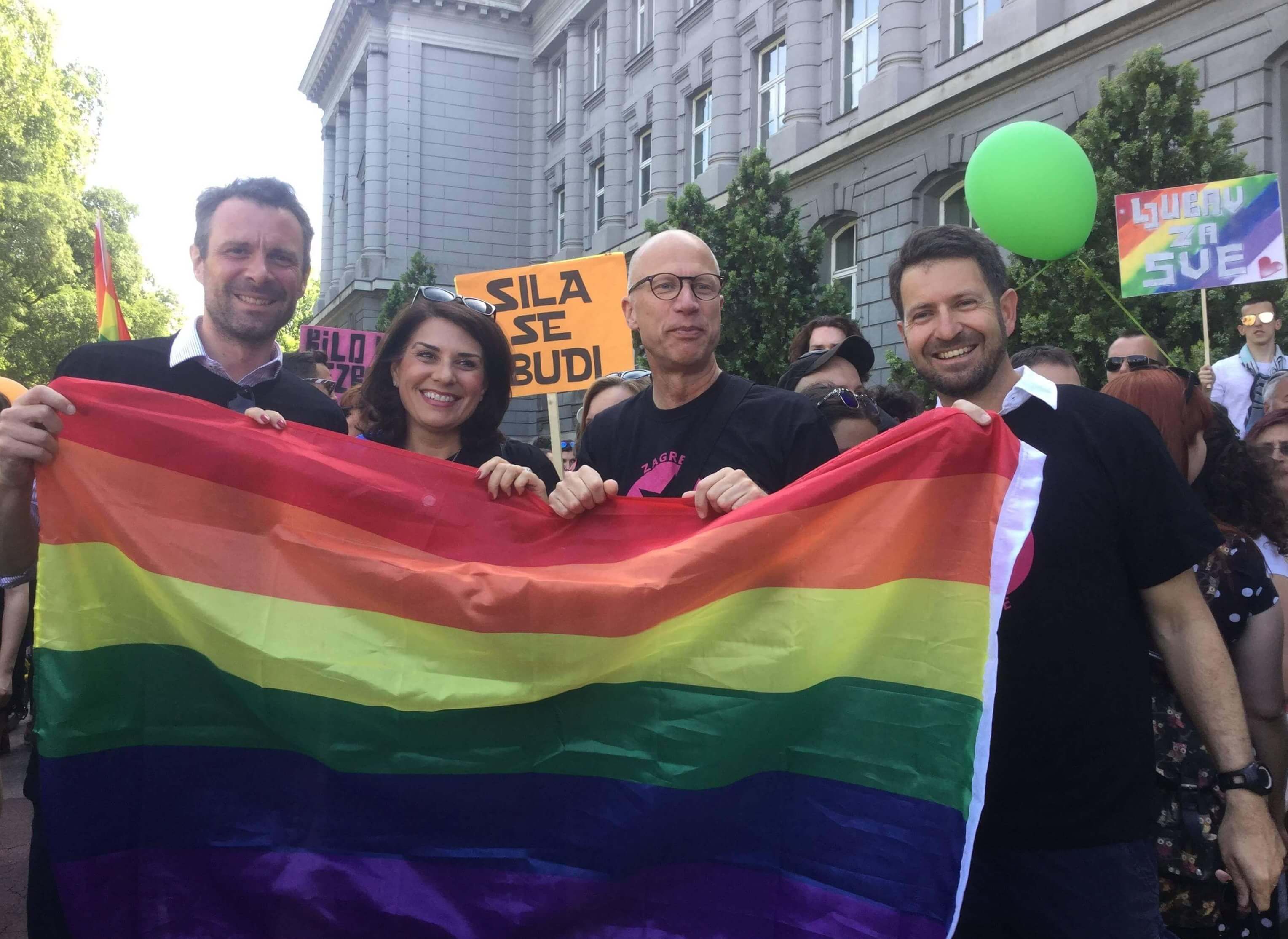
Zagreb Pride, Ambassador Dalgleish with other diplomatic colleagues during Zagreb Pride © British Embassy Zagreb
Things could be better at the commercial level, but there have been improvements...
The values ambassador Dalgeish described are the basis of diplomatic relations between Britain and Croatia, but how good is this relationship, actually? Where is it at its best, and where is it at its worst, where can things be better?
''The starting point is that diplomatic relations are really, really good, and I feel lucky that the cooperation our two countries enjoy is overwhelmingly positive,'' said the Ambassador. He added that as in any close relationship, two countries might disagree about something, but to the British Ambassador, being able to disagree and be fine with that is also a sign of a strong relationship.
''One great expression of our cooperation is NATO where we're really good, very close partners,'' continued the Ambassador, even referring to the recent DEFENDER-Europe-21 exercise in Zadar.
In addition to that, the recent visit of Royal Air Force Aerobatic Team to Croatia's Krila Oluje Pilots is also a good sign of cooperation and mutual friendship.

The Royal Airforce Aerobatic Team and the Ambassador © British Embassy Zagreb
''Croatia occupies an almost unique position in terms of expertise that it can give on Southeastern Europe, as well as comprehensive understanding of what is a very complicated situation in this region,'' he said.
''All of this is very good, strong and positive, and it makes a global impact, and it's not just about how our two countries get along,'' he said.
The Ambassador also added that both Croatia and the UK are members of the Global Media Freedom Pledge and stand for freedom in the media. He also works very closely with both the Croatian Government and Croatian president Zoran Milanović to promote awareness of the threat of climate change.
''You'd expect me to say I communicate the most with the Ministry of Foreign Affairs, and it would be true, it's where diplomatic relations are grown in a formal way. But I also communicate with all branches of the Government, with Parliament and with Pantovčak. Just today, I've been to the ''Dr Fran Mihaljević'' Clinic for Infectious Disease in Zagreb where I talked with its director, Professor Alemka Markotić, about what we can do about COVID-19“, added the Ambassador.
However, as expected, there are areas in which British-Croatian cooperation could be much better.
''Where I'd like things to be better, speaking very frankly, is in commercial relations. The UK has been less present on Croatian market and less accessible due to simple geography, especially when compared to the likes of Austria or Germany. When I arrived here, this is where I said I'd want to try to make a difference. I have made a difference, I hope. A small difference, but its a difference in the right direction, and the commercial relationship is better for that today,'' said the Ambassador.
These small steps saw trade in goods between the United Kingdom and Croatia increase by about 10% in the past few years, a good indicator of how things have been advancing, regardless of the concerns in the past that Brexit might affect it negatively.
''We've also seen investments from the Croatian side into the UK increase in the past few years – for example, Mate Rimac has just opened his research & development centre in the UK – we did help facilitate that through our Department for International Trade (DIT)“, added Ambassador.
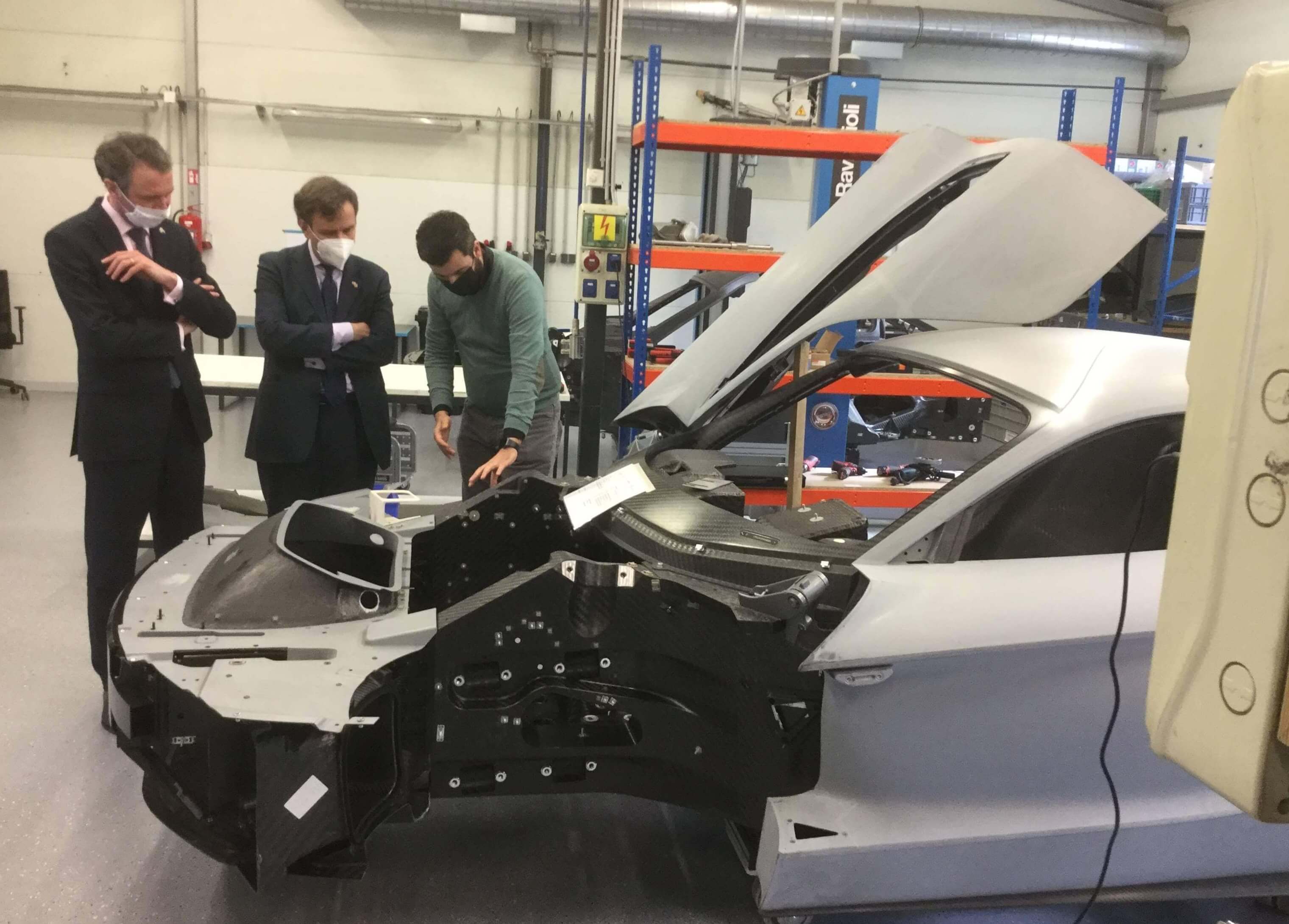
UK Minister Greg Hands and Ambassador Andrew Dalgleish with Mate Rimac in Rimac Automobili © British Embassy Zagreb
In addition, the Ambassador used every opportunity to facilitate business and trade contacts between the UK and Croatia. When UK State Secretary in the Ministry of International Trade, Greg Hands, visited Croatia last month, the Ambassador hosted a dinner for him with several leading Croatian business figures for both sides to explore how they might further improve business connections between the two countries.
On top of that, the recent confirmation from the Justice Ministry that British citizens may purchase property in Croatia only further benefited the development of trading between the two European countries.
Leaving the table for face to face conversation
The cooperation Ambassador Dalgeish described sounds great, but when it comes to diplomatic relations with the UK, the elephant in the room screams out in need of a special mention. Brexit remains a hot topic for the British public, and as Croatia is a member of the EU, what changes can Croatia expect in diplomatic relations with the UK as the European island nation which chose to step away from the bloc?
Dalgleish sees Brexit both as a challenge and as an opportunity to deepen diplomatic relations between the UK and Croatia.
''With 28 members states as it was before, you had so many people around the table that when ministers came together for a council meeting, there were just too many people to have a meaningful conversation one on one. So you'd say ''see you in Brussels'', and you would, and you'd wave, and you'd smile, and you might even say hello. But you don't have a meaningful conversation all the time,'' said Ambassador Dalgeish from his own recollection as he spent a lot of time in Brussels.
''We aren't at that table anymore. That means we're going to have to make more of an effort but also that we will have the opportunity to build a more meaningful relationship with Croatia and I think that's quite exciting for me in the job that I do,'' said ambassador Dalgleish calmly but optimistically.
''Whereas before, our bilateral business might have been conducted during these convenient moments in Brussels at these meetings, that doesn't happen anymore. Now, we will hold them in London, and we will hold them in Zagreb. I think that's quite the opportunity to build something more meaningful than what we had in Brussels,'' stated the Ambassador.
As the UK has a massive impact on the world and can boast of very strong diplomatic relations with other big players on the geopolitical stage, I wondered how important the relationship with Croatia actually is, from the UK's point of view, and in regards to the country's interest in global affairs.
''We look at Croatia as a global partner, and not just from the point of what we get from this bilaterally, but in what we're doing together to make a difference; Croatia sits as a partner,'' the Ambassador pointed out.
Already having mentioned the importance of Croatia's knowledge on Southeastern Europe and the instances of good cooperation through NATO, and issues such as climate change or COVID-19, the British Ambassador's claims are evidently backed up.
''I was sent here by the Foreign Secretary with a very serious mission to deepen the strength of the cooperation that we enjoy. It's a very important mission for me, and I think that's a reflection of how seriously we take the relationship with Croatia,'' confirmed the Ambassador.
The British Royal Family has always been very welcome in Croatia
The Ambassador already mentioned cultural exchange, and the British Embassy as an institution plays a significant role in the cultural promotion of the country. But, given the UK consists of four nations: England, Scotland, Wales, and Northern Ireland, is it possible to represent all these cultures equally? Being Her Majesty Queen Elisabeth II's Ambassador and representing the United Kingdom of Great Britain And Northern Ireland, Dalgeish shows his dedication to the job by equally representing all of the UK's four nations.
''We will proudly fly the St. George's Cross when it's St George's Day for England, but also the Saltire (Scottish flag), when it's St. Andrew's Day. I wouldn't say there is one element of the four nations that is dominant,'' said the Ambassador.
Culture is heavily linked with history, and the UK has been known in the past as a vast empire with colonies that are sovereign independent countries today. As Croatia was never colonised by the UK, are there any differences between the UK's relations with Croatia compared to other countries?
''The UK has a very long list of diplomatic relations, both with the countries who are part of Commonwealth, who were previously colonies, and with countries who were not colonised. So, there's no difference in forming a relationship with Croatia in comparison to such countries. There's nothing I can do about what happened in 1600's or 1700's, but I want to see what we can do in 2021,'' said the Ambassador, stating that the Ambassador's job is to look ahead, not backwards, to work on building the future, while acknowledging all the sensitivities of the past.
As the Ambassador already mentioned, his regular cooperation with the official bodies of the Republic of Croatia is the formal level of communication, while cultural exchange also has a key element in non-formal communication, particularly in education.
''I love going to schools. Talking to the kids about what they think about the UK, and what can they teach me about Croatia, and going to English lessons and causing chaos,'' said the Ambassador on his experiences with the school system in Croatia.
With the mention of the school system in Croatia, I couldn't help but recall my experience in education. Croatians seem to be quite talented when it comes English, but it is mostly pushed towards the American version of English.
''Oh yes I know, it's tragic,'' Ambassador Dalgleish joked in response when I shared my recollections.
He continued by saying that he is happy to see Croats speaking English so excellently, and he doesn't mind what version they learned, nor does he have any intention to have British English compete with American English.
''I don't hear too many American accents when talking to Croats, maybe it has something to do with British TV shows, maybe it doesn't, I don't know. But either way Croats should be very proud of how well they speak English,'' he concluded.
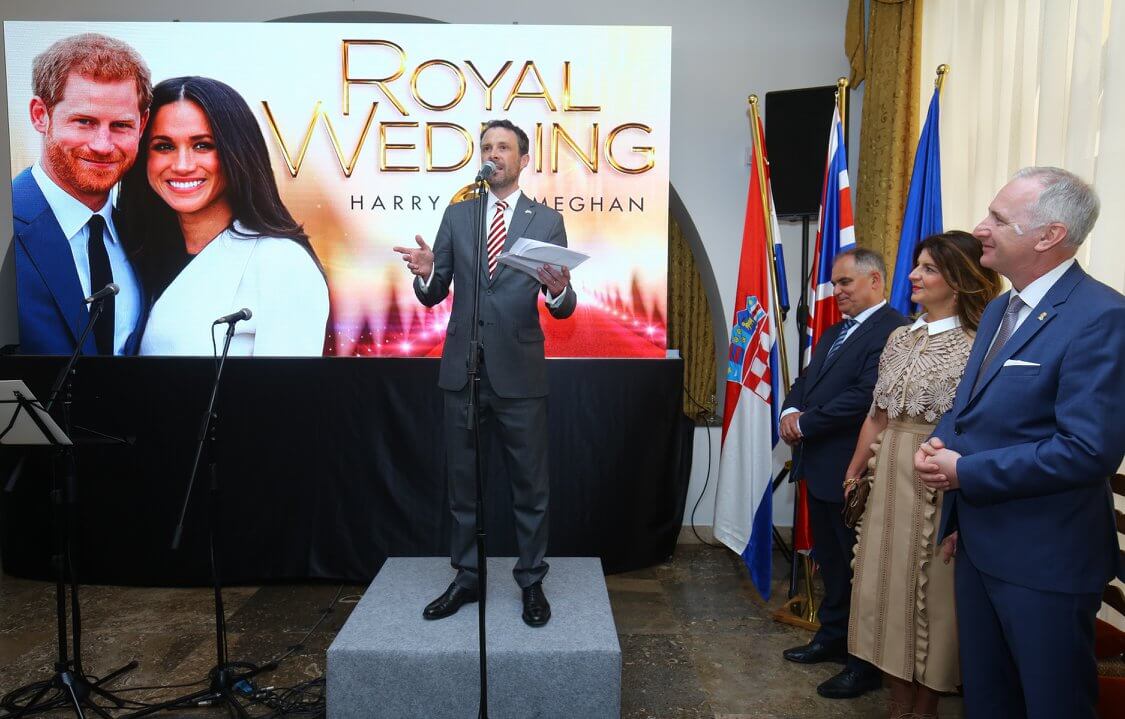
Ambassador Dalgleish on the Royal Wedding Party in Split © British Embassy Zagreb
As also already mentioned, the Royal Family is a big part of the of the fabric of Britain as it is a parliamentary monarchy.
The Royal family, particularly Prince Charles and Duchess Camilla seem to be very fond of Croatia indeed. Their last visit back in 2016 (following the Prince's earlier visit in 1996) saw the meeting with former Prime Minister Tihomir Orešković, former President Kolinda Grabar Kitarović, for whom Prince Charles highlighted his particular interest in the Croatian economy, as well as an interest in investing in Croatian youth. They also attended the commemoration of the 400th anniversary of the death of the famous English writer and poet William Shakespeare at the Croatian National Theatre (HNK) in Zagreb.
''Their Christmas card even had a photo of them with the members of a folk band from Osijek“, said Ambassador Dalgleish referring to the photo the British Royals took with the dancers of the HKUD 1862 ensemble.
And as Glas Slavonije reported, Osijek is very special to Prince Charles as his Great Grandfather Franz von Teck was born there.
Most recently, however, the Royal Family suffered a tragic loss as the much-loved Prince Philip passed away. Croatian Prime Minister Andrej Plenković expressed his deep condolences to Queen Elizabeth II publicly on Twitter, but as the Ambassador pointed out, he also sent condolences through official channels. Social media and overall technological progress now allows world leaders to communicate more directly, but it doesn't diminish the role of the British Embassy.
''Everyone who wanted to express their condolences, expressed them, from Pantovčak, to Parliament and the Government. Social media is an additional tool for us regarding public statements, but of course, embassies remain here for those sensitive issues that need to be discussed Government to Government, not over social media. We're also here for our citizens, and we can't be present in the whole country, so travelling, but also social media, are also very important here,'' explained the Ambassador.
The always attractive Dubrovnik was found to be the best example when it comes to culture in the country, as Game of Thrones and Star Wars were filmed there.
In the UK, the film industry, in addition to private incentives, gets financial support from the state, as the British Film Institute (BFI) is sponsored by a Government department. Following the examples of Star Wars and GoT, could there be more promotion from the BFI of Dubrovnik or Croatia in general as a good filming location?
''I don't really need to say anything about Dubrovnik. Dubrovnik speaks for itself, and more Brits visit Dubrovnik annually than anyone else,'' said the Ambassador with delight.
But if Dubrovnik did happen to need a good word or two; the Ambassador stated that he is not the tourist bord, and promoting Dubrovnik is not part of his duties.
''If someone from the UK contacts me and says that wants to film anywhere in Croatia, but is facing problems, then I'm here. But in general, the less I need to intervene, the better“, said the Ambassador adding that he found out about UK film producers filming in Croatia after it had already happened. One of the more recent examples of that was the filming of the ''The Ipcress File'' series in Zagreb, and the fact that the ambassador didn't need to intervene again only proves the steady and good relations between the nations.
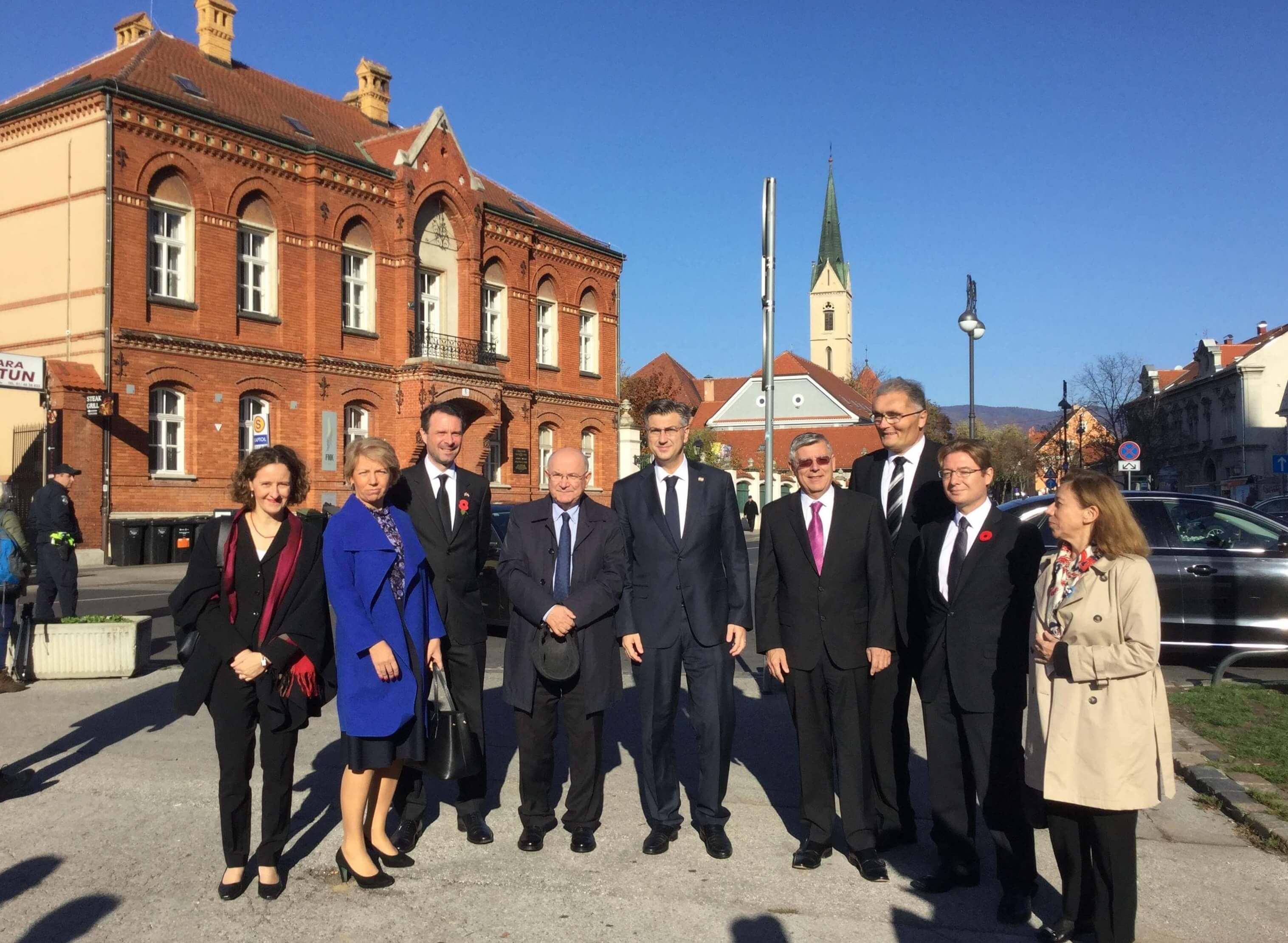
Ambassador Dalgleish, other Ambassadors and Croatian officials attending a Mass for all victims of WW2 at the Zagreb cathedral © British Embassy Zagreb
British and Croatian Ambassadors: Swapping countries but closely talking and cooperating
Foreign embassies, of course, are in Croatia for foreign citizens, and the British Embassy is no exception to that rule.
In addition to the British Embassy and a consul in Zagreb, the UK has two additional consuls: in Split and Dubrovnik, to make sure it is present for UK citizens, not just visitors, but also for Brits who work and live in Croatia.
''We have an honorary consul in Dubrovnik, which isn't officially part of the embassy, but is there to assist our citizens visiting Dubrovnik,'' pointed out Ambassador Dalgleish praising honorary consul Mark Thomas for doing a great job.
When it comes to Croats, visas to visit the UK are luckily not needed, but Croatian citizens can contact the embassy to get more information about Great Britain should they need to.
''When it comes to trying to invest in the British market or getting their products or expertise into the UK, Croats need to contact the Croatian Embassy in London. I'm frequently in contact with the Croatian Ambassador there, Igor Pokaz, who is doing a brilliant job for our two countries to fund and nurture different ways of cooperation,'' explained the Ambassador when discussing his relationship with the Croatian Ambassador in London, Igor Pokaz.
Overall, British-Croatian diplomatic relations are good in general, and the Ambassador's assurance that Brexit can be an opportunity to deepen the already good relationship is a promise to the bright future of friendship. But, as it takes two to have a combo as good as fish & chips, Croatia also has to show that it is willing to continue to develop a good friendship with the UK.
If you're a British citizen or a Croatian citizen in need of information, here is how you can reach a British diplomatic mission in Croatia:
In Zagreb:
British Embassy
Adress: Ivana Lučića 4
Mail: This email address is being protected from spambots. You need JavaScript enabled to view it.
Phone number: +385 1 60 09 100
British Council (for cultural realations):
Adress: Savska 32
Mail: This email address is being protected from spambots. You need JavaScript enabled to view it.
Phone number: +385 1 48 99 504
More info on British Council official website.
In Split:
British Consulate
Adress: Obala Hrvatskog narodnog preporoda 10/III
Phone number: +385 1 60 09 100
In Dubrovnik:
British Honourary Consulate
Address: PP 454
Phone number: + 385 1 60 09 100
For all the latest news about the British Embassy straight from the source, visit their official website. You can also follow them on Facebook, Youtube, Flickr, Instagram and Twitter (the British Ambassador is on Twitter and Instagram too).
To read more from the series "Friends of Croatia", follow TCN's dedicated page.
For more about UK - Croatia relations, follow TCN's dedicated page.
Highlights of the Week: 5 Big Events in Croatia from March 15-21, 2021
March 21, 2021 – From the Mamić brothers verdict on Monday to Dinamo's historic match with Tottenham on Thursday, here are TCN's five highlights of the week from March 15 to 21, 2021.
As we look back and review the top news in Croatia over the past week, we realize just how much can change – and even history can be made. For Dinamo's fans, this week's match with Tottenham will surely be one of the most significant games, as they secured a place in quarter-finals of the Europa League after more than half a century. But that is not the only good sports news from Croatia this week!
From Monday to Sunday, we list five events featured on the front pages of news portals in Croatia.
Highlights of the week: Mamić brothers verdict
At the beginning of the week, the news of the brothers Zdravko and Zoran Mamić verdict resonated with the public. Namely, the Croatian Supreme Court has issued a final judgment and confirmed prison sentences for the Mamić brothers, former Dinamo director Damir Vrbanović, and tax collector Milan Pernar.
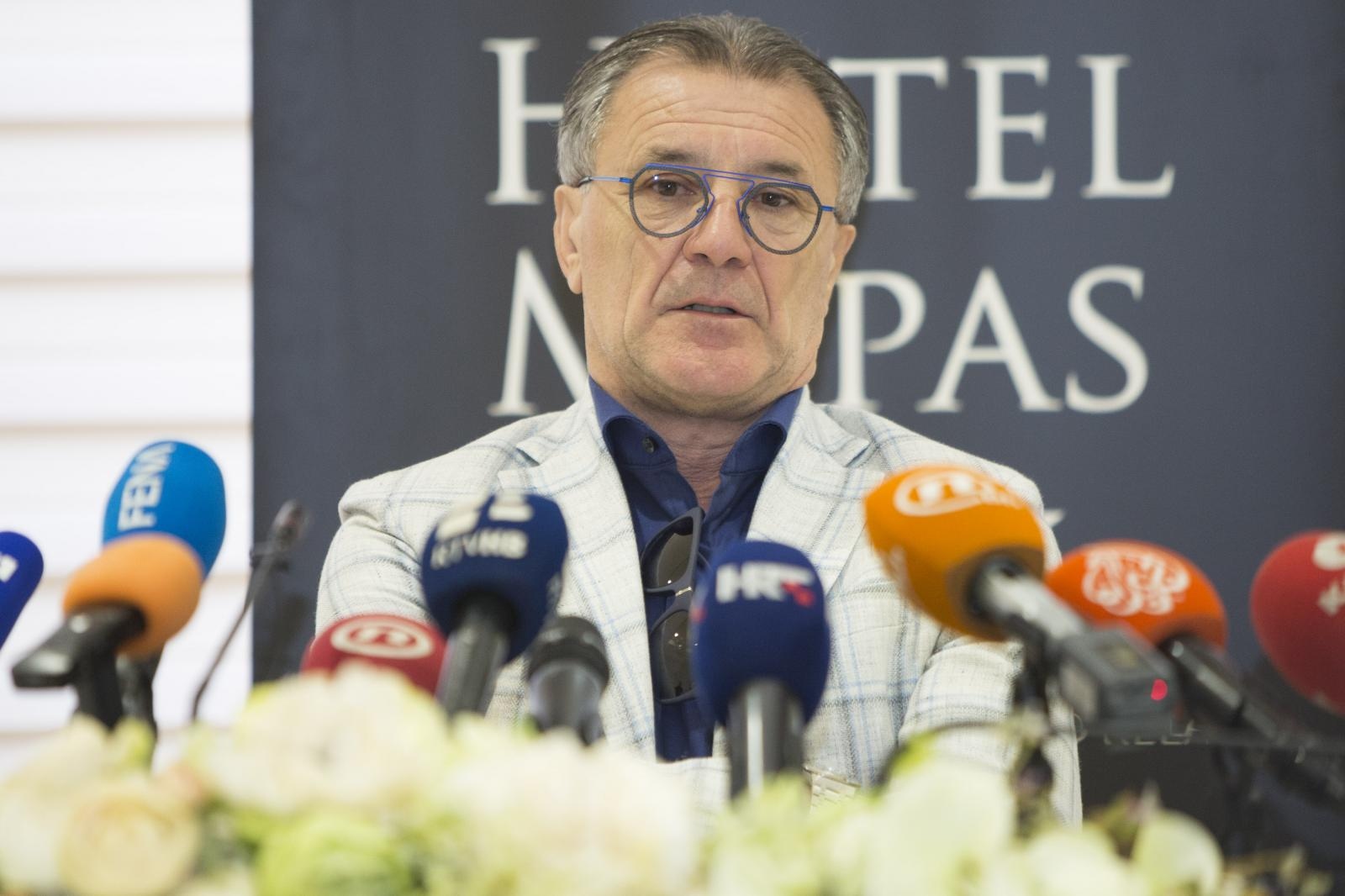
Zdravko Mamić. Photo: Denis Kapetanovic/PIXSELL
Zoran Mamić and Milan Pernar were found guilty of reducing Mamić's tax liabilities and accepting bribes, and Zoran Mamić was also found guilty of giving bribes. Zdravko, Zoran Mamić, and Vrbanović are guilty of splitting the Dejan Lovren transfer and Zdravko Mamić for splitting the Luka Modrić transfer.
Zdravko Mamić was sentenced to six and a half years in prison. Four years and eight months in prison were given to his brother Zoran Mamić, who resigned as Dinamo coach after the verdict, just three days before a crucial match against Tottenham. Former Dinamo director Damir Vrbanović was sentenced to three years in prison.
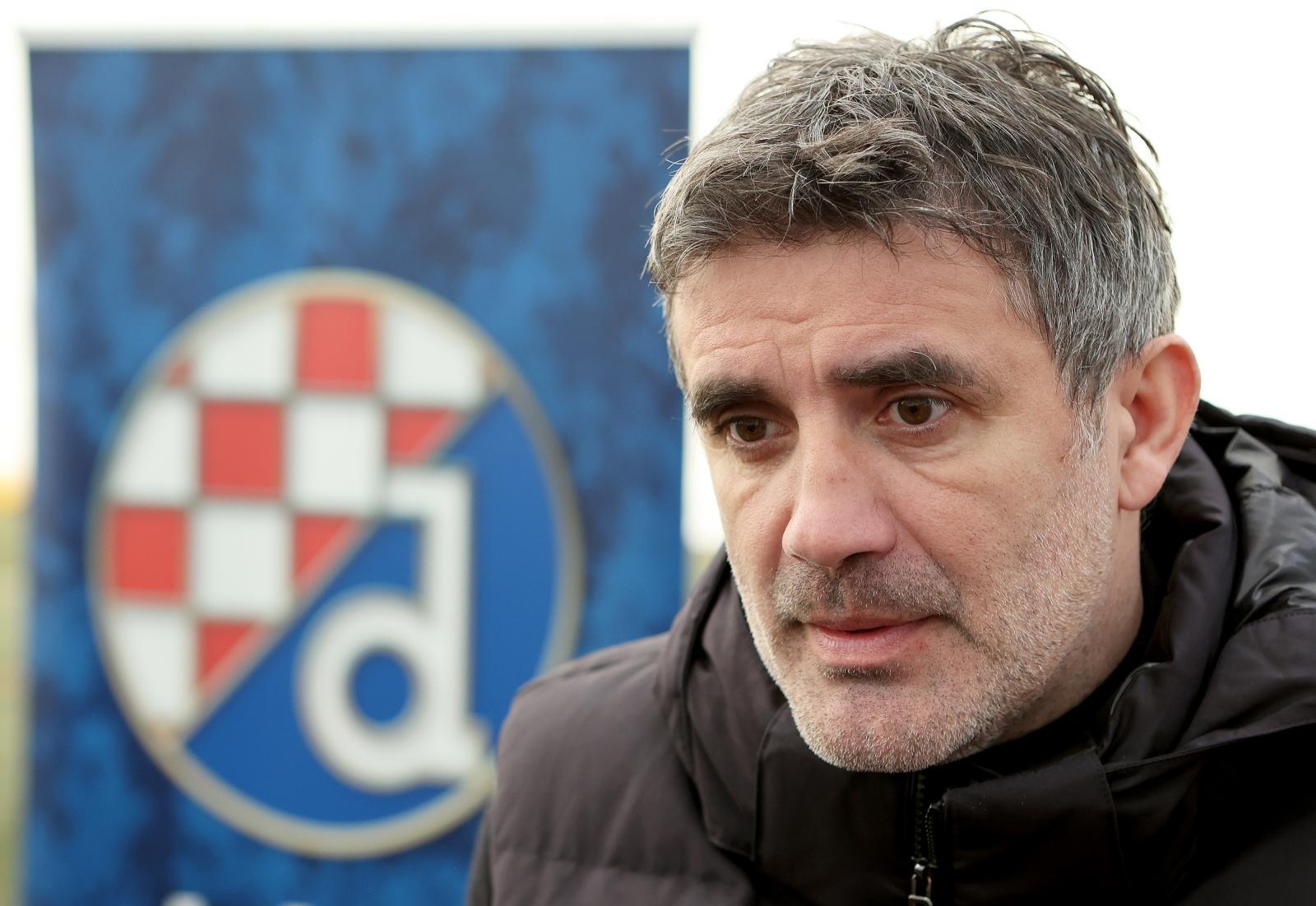
Zoran Mamić. Photo: Marko Prpic/PIXSELL
Also, Zdravko Mamić must return 52 milion kuna. According to the verdict, Dinamo was damaged by 80 million kunas in total. The state will also take their other assets, namely property, and cars.
Highlights of the week: Dinamo tops Tottenham and writes history
Regardless of the events in Dinamo earlier this week, the players showed all the quality on the field on Thursday and beat Tottenham 3: 0 (3:2) in a historic match. Thanks to the incredible game of Mislav Oršić, who was later named UEFA player of the week, Dinamo secured a place in the quarter-finals of the Europa League after more than 50 years!

Mislav Oršić. Photo: Goran Stanzl/PIXSELL
Dinamo thus created the first-class sensation, and this match will be remembered for a long time. A big celebration of Dinamo fans Bad Blue Boys and players followed the game in front of the Maksimir Stadium in Zagreb. Deservedly!

Dinamo fans and players celebrating after the match, Mislav Oršić in the air. Photo: Goran Stanzl/PIXSELL
Highlights of the week: The UK and Croatia tourist opportunities
Andrew Dalgleish, the British Ambassador to Croatia, visited Croatia this week to discuss tourism opportunities between the two countries with Croatian Tourism Minister Nikolina Brnjac.
As she pointed out, Croatia is ready to receive tourists from the UK, one of Croatia's most important tourist markets, as soon as the UK's epidemiological rules allow for that.
"We're pleased with the fact that the destination of Croatia is still perceived in the United Kingdom as high quality, desirable, and safe. A dialogue has been opened with the British side on travel facilitation modalities between the UK and Croatia," said Brnjac.
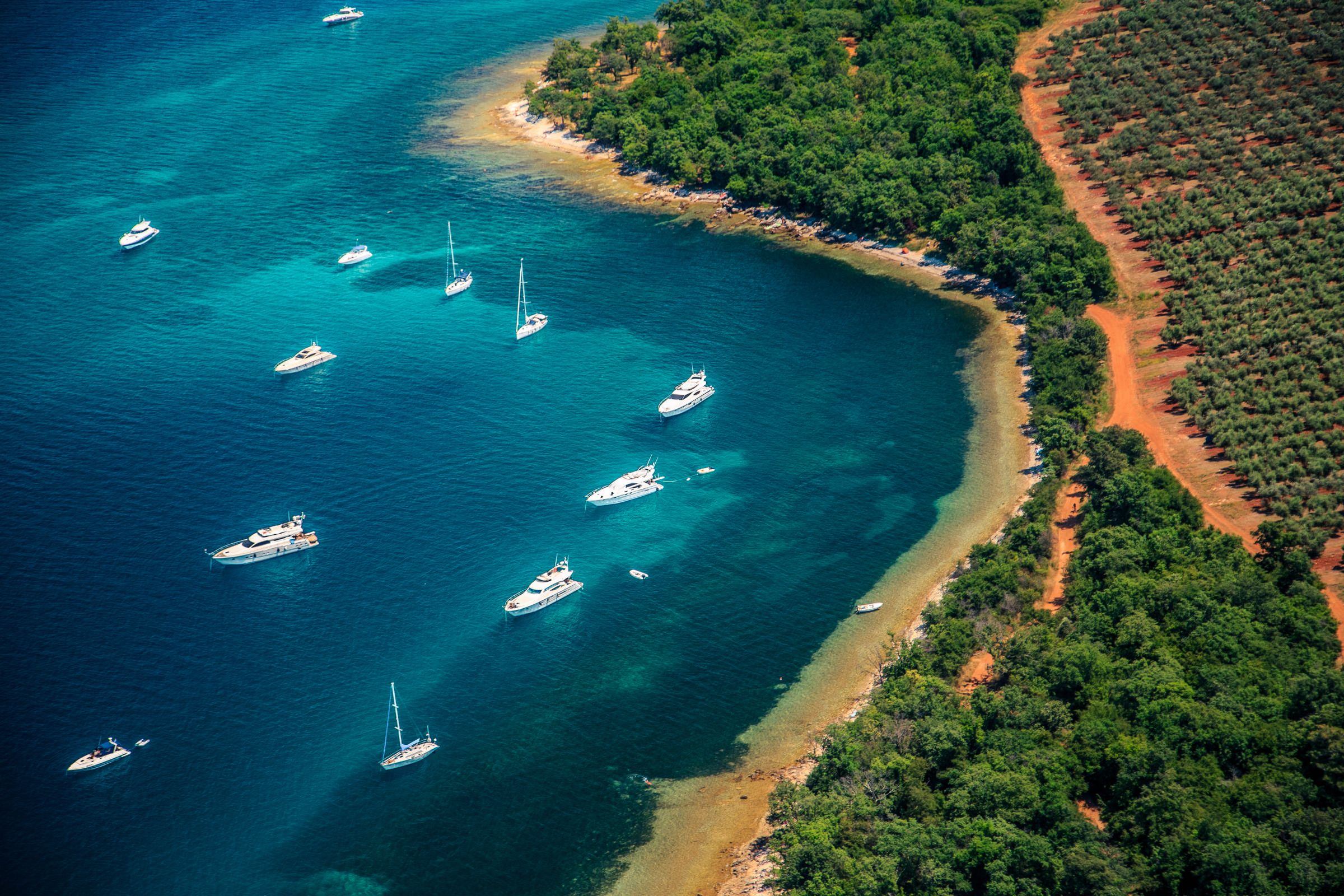
Photo: Romulić and Stojčić
She was even cited by the Daily Telegraph. Croatia's attempts to get the best out of the upcoming summer season are recognized by many other countries interested in traveling to Croatia.
Highlights of the week: Increasing number of new infections and citizens' dissatisfaction
As the pandemic rages on, the infection numbers started to grow again in Croatia, and now statistically younger people need respirators. With the increase in the number of new coronavirus cases that we witnessed this week, citizens' dissatisfaction with the current epidemiological measures has also increased.
To express their dissatisfaction, protesters gathered in five Croatian cities and protested against the measures, but also against the mandatory wearing of face masks.
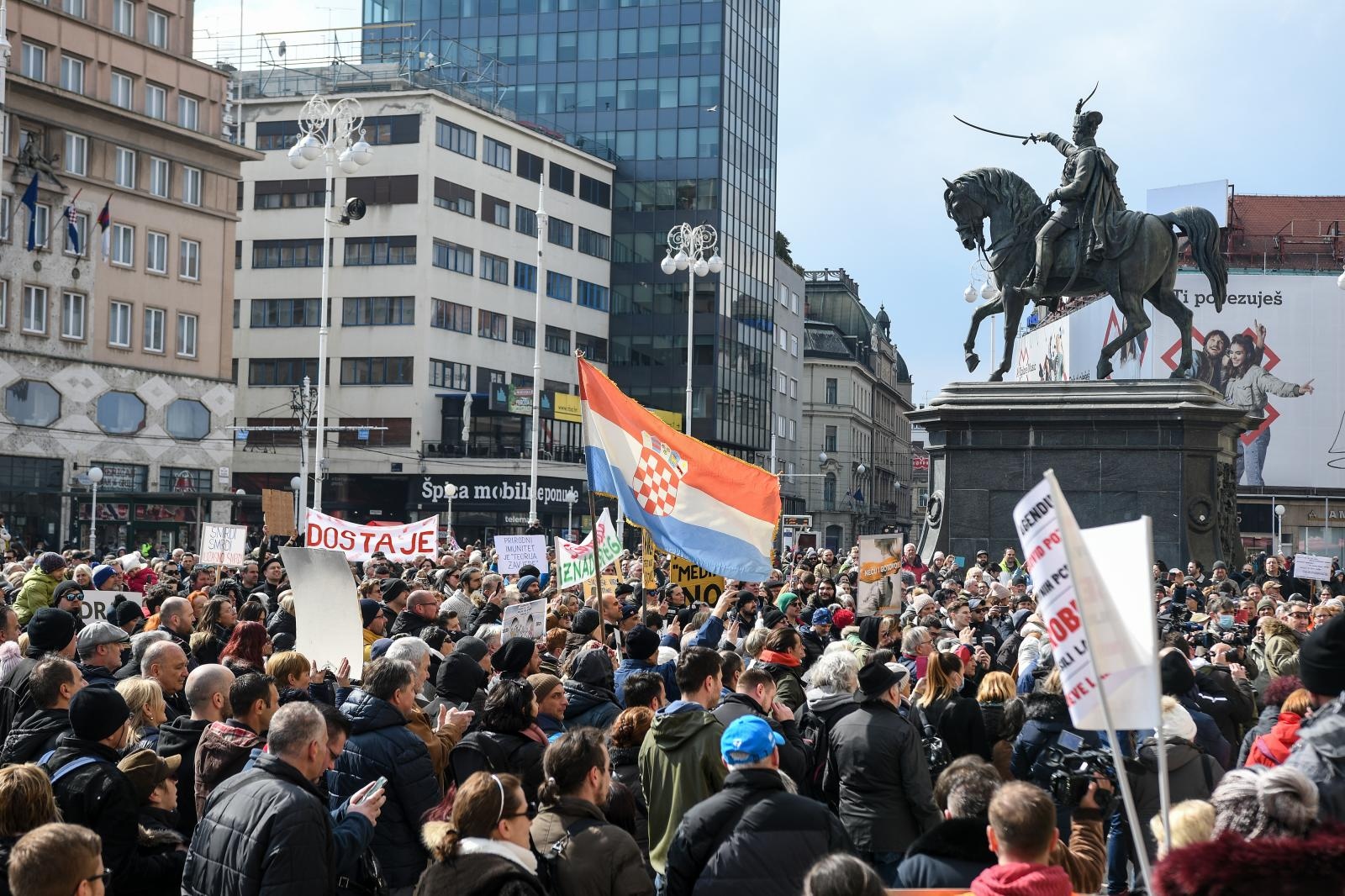
Protest against epidemiological measures in Zagreb, March 20, 2021. Photo: Zoe Sarlija/PIXSELL
Organized by the Rights and Freedoms Initiative, Croatians in Zagreb, Dubrovnik, Split, Šibenik, and Osijek thus supported the protests in about 40 countries worldwide under the slogan "World march for freedom, peace, and democracy."
Highlights of the week: Filip Zubčić wins second place in Lenzerheide
Croatia is truly a home to great athletes. As if we haven't seen big results in Croatian sport this week, Croatian skier Filip Zubčić took care of the even better end of the week, winning second place in the Lenzerheide Grand Slalom.
Zubčić had an excellent performance in the last giant slalom of the season. After ranking third place in the first run, he finally won second place, 20 hundredths of a second behind French skier Alexis Pinturault. In the overall ranking of skiers, Zubčić is fifth with 744 points.
To read more about sport in Croatia, follow TCN's dedicated page.
To follow all news from Croatia, subscribe to our newsletter.
Britain Appoints Simon Thomas New Ambassador To Croatia
January 25, 2021 – Replacing the outgoing Andrew Dalgleish, Simon Thomas new ambassador to Croatia is an expert on security and counterterrorism
After five years in his position, the United Kindom's popular ambassador to Croatia, Andrew Dalgleish will move on to pastures new in July 2021. Britain has appointed Simon Thomas new ambassador to Croatia. He has a background in diplomacy and is an expert on security and counterterrorism.
Simon Thomas new ambassador to Croatia is a career diplomat but has held several positions outside of the diplomatic service. He joined the United Kingdom Diplomatic Service in 1997, after graduating with honours in Russian language and literature at the University of Birmingham. His first appointment saw him assigned to the Russia department of the Foreign & Commonwealth Office before he took up the position of Second Secretary in the United Kingdom Embassy in Warsaw, Poland.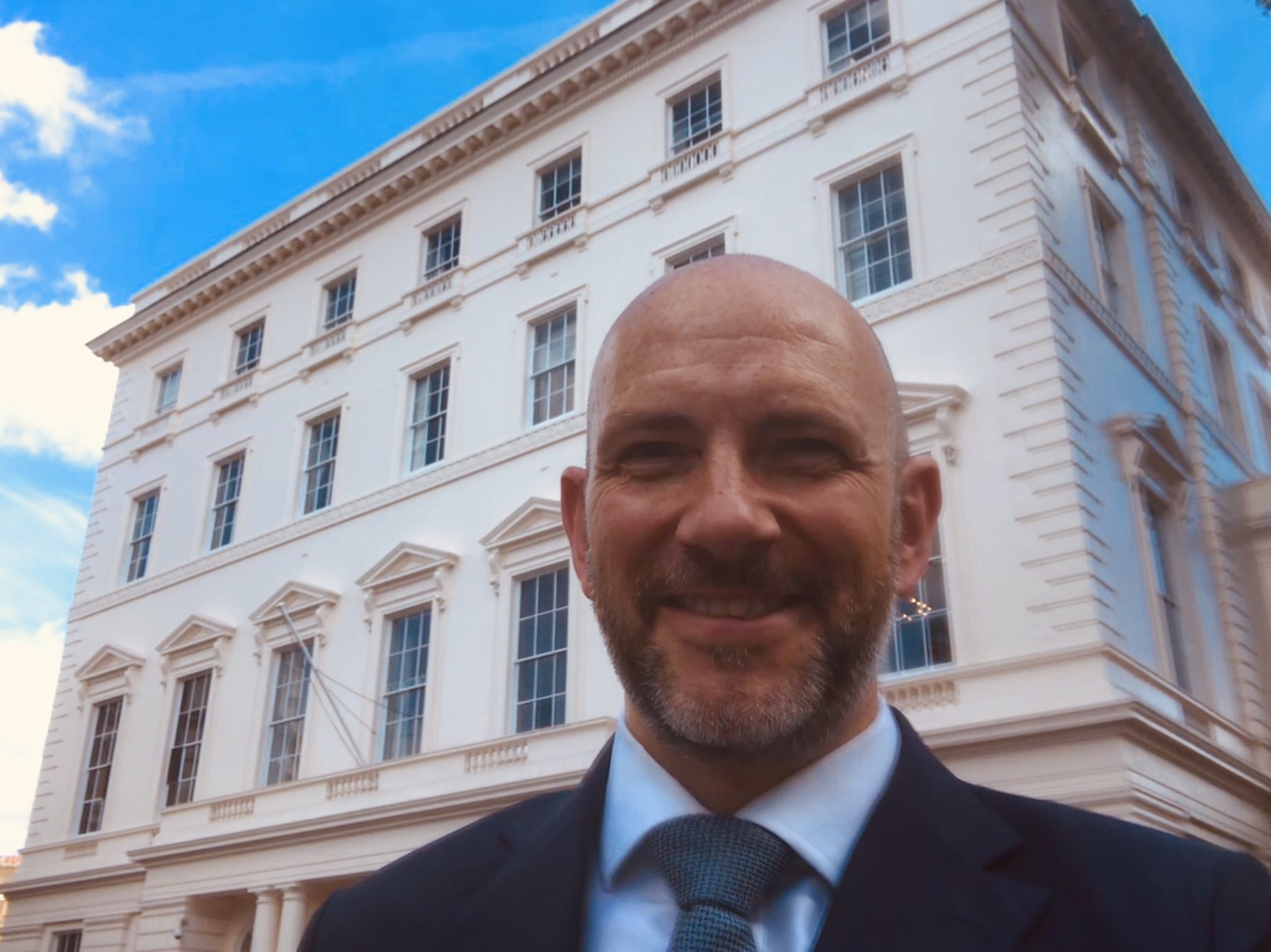 Simon Thomas, the United Kingdom's new ambassador to Croatia © Simon Thomas
Simon Thomas, the United Kingdom's new ambassador to Croatia © Simon Thomas
After over two years at this station, he spent time at the UK Mission to the United Nations in New York and the UK Representation to the European Union before being recalled to the UK to work in the field of counter-terrorism in the Cabinet Office.
After returning to the Russia department of the Foreign & Commonwealth Office for over two years, this time in a more senior position, he went back to New York for a couple of years to take up the First Secretary position of the UK Mission to the United Nations.
From there, he was promoted to Deputy Head of Mission at the British Embassy in Buenos Aires, Argentina, where he remained for over three years. Following another UK-based appointment, he again took up the position of Deputy Head of Mission, this time at the British Embassy in Harare, Zimbabwe, where he spent over two years.
In the period since, Simon Thomas new ambassador to Croatia returned to education. He earned a bachelor’s degree from the Royal College of Defence Studies where he spent a year studying strategy, leadership and international affairs alongside senior military and civilians from more than 50 countries. He has also been learning Croatian. He also holds a master's degree in International Security and Strategy from King’s College, London. He was awarded the title of Officer of the Order of the British Empire (OBE ) for merit in foreign policy in 2008.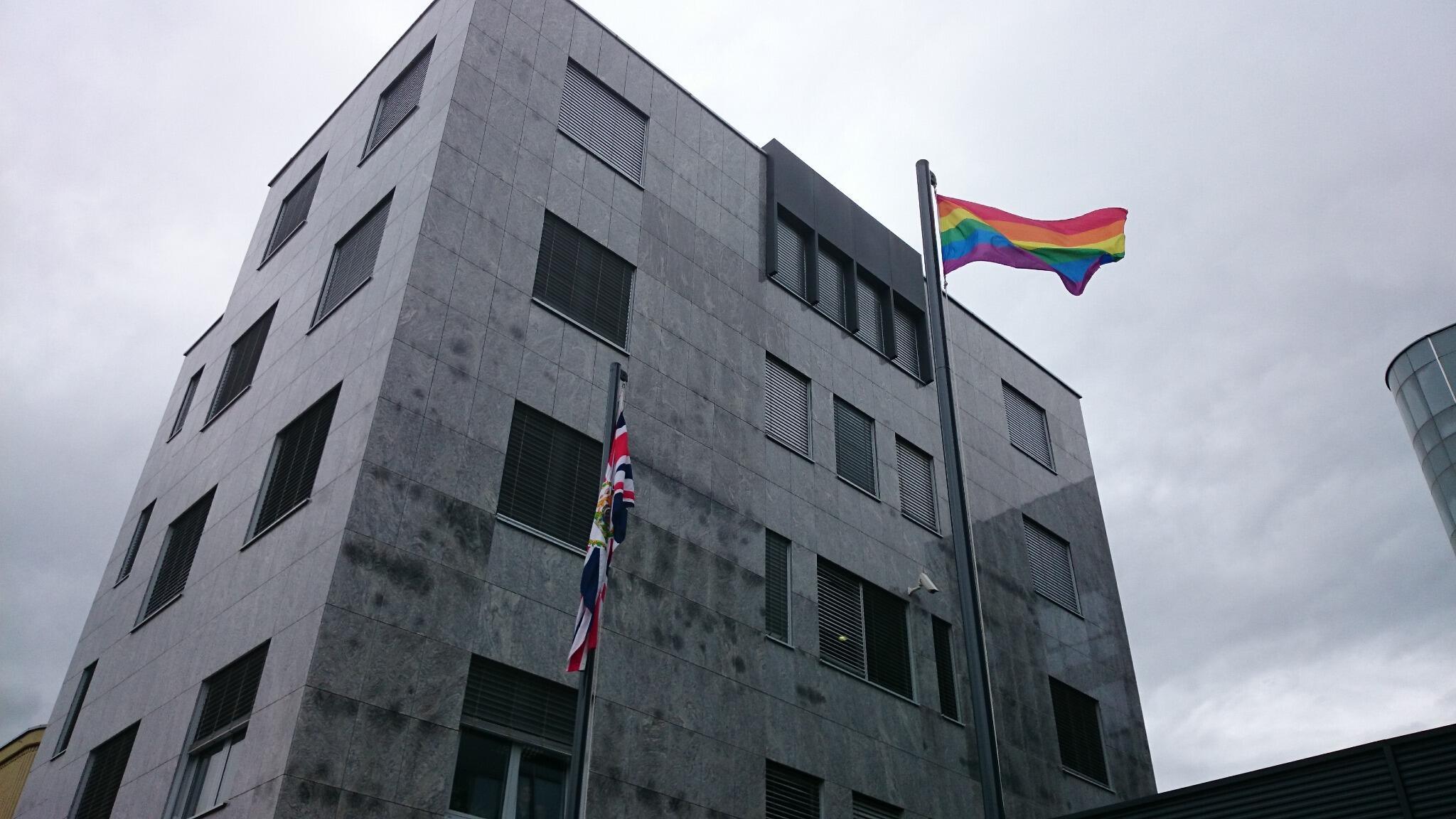 The Embassy of the United Kingdom in Zagreb © UK in Croatia
The Embassy of the United Kingdom in Zagreb © UK in Croatia
Simon Thomas new ambassador to Croatia tweeted “Delighted to be appointed the next United Kingdom British ambassador to Croatia, succeeding Andrew Dalgleish in July. Very much looking forward to getting to know Hrvatska and her people, and to deepening the great friendship between our two countries.”
The outgoing ambassador echoed his sentiments: “Excellent news of the appointment my successor, who takes over when I leave beautiful Croatia this summer,” tweeted the popular Mr Dalgleish, who will obviously miss the country he has called home for the last half-decade.
“Simon, get ready for one of the best jobs you could wish for!” furthered Mr Dalgleish. “Until then, I've still got so much to see and do!”
Mr Dalgleish will be transferring to another appointment within the United Kingdom Diplomatic Service. We wish him the best of luck and warmly welcome Simon Thomas new ambassador to Croatia.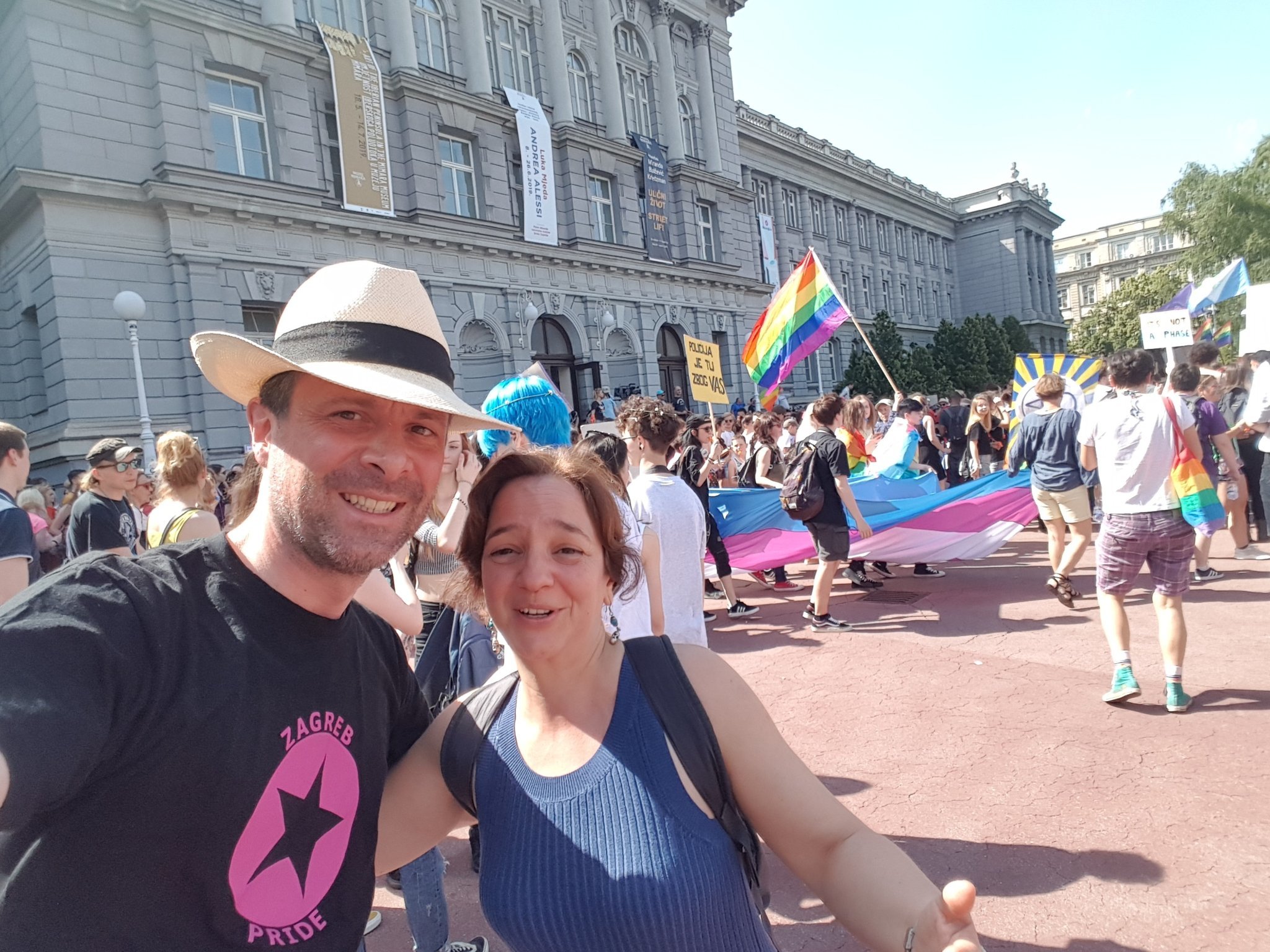 The outgoing United Kingdom ambassador to Croatia, the popular Mr Andrew Dalgleish, pictured with a colleague from the Spanish Embassy at Zagreb Pride in 2019 © Andrew Dalgleish
The outgoing United Kingdom ambassador to Croatia, the popular Mr Andrew Dalgleish, pictured with a colleague from the Spanish Embassy at Zagreb Pride in 2019 © Andrew Dalgleish
British Ambassador Partakes in Komiza Think Green Action
As Morski writes on the 19th of October, 2020, after two days, the ecological action Think Green on the island of Vis in the town of Komiza came to an end. The Komiza Think Green action was in actual fact 20 actions in a row. The main organisers of the ecological action and holders of the Think Green project are the Diving Club Roniti se Mora and National Geographic Croatia, as well as other partners of the Komiza Tourist Board, British Embassy Zagreb, Fund for Environmental Protection and Energy Efficiency, CIOS, Mares, Jamnica, Garmin, ESET NOD32, Zagrebacke pekarne Klara, Medvedgrad Brewery, Perutnina Ptuj, DVD Komiza, DC Manta, DC B-24, DC Issa, Nautical Centre Komiza, Geopark Vis, Modra Spilja, Morski HR and Scubalife.
The seabed in Komiza and Gusarica beach were cleaned by as many as 50 dedicated divers and several volunteers from along the coast, who were joined by the locals of Komiza. Over 200 bags of various waste, dozens of car tyres and batteries, fenders from boats, a hundred metres of steel cables, old pots and chairs were taken out, which were taken care of by the employees of Komiza's communal board. Approximately 1.5 tonnes of bulky waste and waste in bags were collected in total.
Diving parachutes, hooks and boats were used to extract large pieces of debris, and the situation with waste at such busy, semi-closed, micro-locations is of course not satisfactory. After such actions, no one expects the seabed to be completely cleaned, but the educational effect is immeasurable.
Several hundred kilograms of removed waste and garbage aren't negligible, but the real goal of such eco-actions is not only cleaning but also educating citizens, encouraging more responsible behaviour and pointing out the growing danger of pollution. The real goal is to act on awareness and reduce pollution, and only then remediation. The Komiza Think Green action achieved both goals in the right way.
Perhaps the biggest undertaking of this action was the waterfront in Komiza, around which almost most of the waste was removed, while mostly plastic packaging and small items were found on Gusarica beach.
''We're happy and privileged that we were able to donate part of the equipment to the diving club. The best side of this donation is that this equipment will remain in the club and will be used not only in this action on Vis but also in future actions of cleaning waste from the Adriatic sea and beaches, probably one of the most beautiful coasts in the world,'' said British Ambassador to Croatia Andrew Dalgleish.
The United Kingdom is already fully "thinking green" - fighting climate change and cleaning up the environment - and this is an important focus of our action, especially this year, as in exactly one year the UN Conference on Climate Change will be held in our country, in Glasgow. The UK has already committed to reducing carbon dioxide emissions to zero by 2050, we've banned the use of micro-plastic particles in cosmetic products, and they usually end up right in the seas and oceans. We protect our natural habitats and ecosystems in collaboration with other countries and communities. And just last week, Prince William launched the Earthshot Award, the most prestigious global award in history, which should inspire us and give even more impetus to efforts to "fix" our planet over the next 10 years, and that decade is crucial for the Earth,'' said Dalgleish.
The decisions we make and the actions we take now will have a direct impact on the environment we leave to future generations. We, each of us, are responsible for the actions that will help or hurt our environment,'' concluded the British ambassador.
For the latest travel info, bookmark our main travel info article, which is updated daily.
Read the Croatian Travel Update in your language - now available in 24 languages
VIDEO: British Ambassador Shares Message to Brits in Croatia
October the 2nd, 2019 - Last night, a meeting between affected British expats living in Croatia and British Ambassador to Croatia, Andrew Dalgleish on the topic of citizen's rights took place in Zagreb.
During the meeting, which took place between 18:00 and 20:00, numerous questions were raised by concerned British expats and the ambassador did his best to answer them. We have also covered the topic of Brexit and what that means for British citizens living legally in Croatia extensively and numerous times.
Updated information on what a potential no deal Brexit would mean for British nationals living in Croatia can be found by clicking here.
Our advice, as well as that directly from MUP (Ministry of the Interior), can be read here.
If you are a British national who has legal residence in Croatia, be it temporary or permanent, you will be covered by transitional measures which will have no end date, allowing you to continue your lives in Croatia just as you did before the UK's withdrawal from the EU. All you will need to do is exchange your current residence permit for a different one within twelve months following a no deal Brexit date.
Please note that the new cards are not another application procedure, but merely a formality. You can read much more detail on that here.
If you're a British national and for some reason or another you have not yet registered your residence with the local police, make sure to do so as soon as possible as an EU national in order to be covered by the aforementioned transitional measures with no end date, and avoid needing to apply as a third country national following (what is currently) expected to be Brexit day - October the 31st, 2019.
Watch Andrew Dalgleish's video, which touches on the appropriate legislation on both residence and healthcare here:
Make sure to stay up to date with the UK Government's Living in Croatia page for updates, follow British Embassy Zagreb on Facebook, and stay up to date with us on our politics page as we update you on any further news on Brexit that may affect you.
British Embassy Zagreb Releases Brexit Video for UK Citizens in Croatia
The British Embassy in Zagreb has released a video for British citizens living and working in Croatia in which UK Ambassador to the Republic of Croatia answered a few common questions from Brits worried about their futures in Croatia after Brexit.
The video, aimed at answering the questions of worried British residents in Croatia in the case of an unwanted and disorderly but still possible No Deal Brexit, saw Andrew Dalgleish sit down and respond to a handful of concerns put to the embassy by Croatia's Brits, of which there are well under 1,000 legally registered.
If you're a British citizen living in Croatia and you're concerned about your rights after the United Kingdom withdraws from the European Union, which, if all goes to plan, will occur at the end of next month, make sure to follow us as we bring you all the information you need, as and when it happens.
If Theresa May's deal is passed, this article will tell you in detail what that means for you as a British national in Croatia.
If an unwanted No Deal Brexit occurs, MUP (Croatian Ministry of the Interior) has assured both Balkan Insight and TCN that British citizens with a biometric residence permit (temporary or permanent residence/privremeni ili stalni boravak) should be able to continue their lives broadly as they do now, and that the proper measures for that will be introduced. Although Croatia hasn't yet delivered any public assurances like several other EU countries have, in the spirit of reciprocity, Croatia will follow.
MUP's statement to me can be found here, along with the direct translation.
For information on how you can work to prepare and thus further safeguard your rights in the event of Britain crashing out of the bloc at the end of next month, read this article.
Make sure to stay up to date and/or sign up for email alerts from the British Government's Living in Croatia page in case any changes to your rights do occur.
In the meantime, make sure you're registered with the authorities in Croatia and are in possession of a valid biometric residence permit before the 29th of March, 2019.
For more on Brexit and on Croatian politics, give our dedicated politics page a follow.
British Ambassador Andrew Dalgleish Discusses Potential No Deal Brexit
Andrew Dalgleish talks about the unwanted yet still possible No Deal outcome, what this means for Croats in the UK, what it could mean for Brits in Croatia, and how, if at all, Brexit will affect Croatia's tourist industry.
While many British citizens in Croatia remain worried for their future in the country, rest assured that we at TCN, along with the British Embassy in Zagreb, will continue to do our absolute best to keep you informed of any changes, should they occur at all, to your rights to residence, access to healthcare, the labour market, and your access to Croatia's social security system.
We have already written numerous articles on what Brexit is likely to mean when it comes to British citizens living in Croatia with regulated status (biometric residence permit of either temporary (privremeni) or permanent (stalni) residence (boravak), which was your right to claim as EU citizens. I'd like to preface this by saying that there is no need to do anything but remain calm despite the sheer lack of information provided to you, we're fully aware of your concerns and will seek to assure you as best as we can along the way.
MUP has assured TCN in private correspondence with me that British citizens, even in the unwanted event of a No Deal Brexit, who have a valid residence permit of some kind, will not be seen as illegal persons living on the territory of the Republic of Croatia on the 29th of March this year. Please click here for the full article on that, as well as ways to safeguard and prepare, here for MUP's statement to Balkan Insight, and here for Paul Bradbury's meeting with Andrew Dalgleish, the UK Ambassador to Croatia, which took place a few weeks ago. Should the UK leave with May's deal on the UK's Withdrawal Agreement, click here to find out what that means for you.
Although the following article doesn't talk quite enough about the rightful worries and fears of Croatia's resident Brits, the number of which is well under 1,000, Andrew Dalgleish sits down to discuss what a potential No Deal Brexit might mean should it occur, and sought to reassure that British tourists, who are among the most numerous European visitors to Croatia, will continue to come.
As Mark Thomas/Slobodna Dalmacija writes on the 19th of February, 2019, before Britain's (planned) exit from the European Union scheduled for March the 29th this year, we talked with UK Ambassador to the Republic of Croatia, Mr. Andrew Dalgleish, to find out what the future of the always positive relations between Croatia and the UK are set to become.
"Croatian citizens living in the UK shouldn't worry if Britain leaves the European Union without agreement because the [British] Government has taken all the measures to protect [EU] citizens [living in the UK at the time of exit]," the ambassador stated.
The British Government ''is making a huge effort to reach an agreement'', and the outcome of Brexit for Great Britain has two scenarios, at least in this phase of negotiations; the UK leaving the EU, should it continue to stand by its current position, either with or without agreement. Whatever the solution turns out to be, it will bring new questions, as well as new solutions, in terms of citizens' rights.
If Britain leaves the European Union on March the 29th, how will it affect the status of Croatian nationals living in the UK in the case of a No Deal Brexit?
Since the beginning of the negotiations around Brexit, Prime Minister Theresa May has been very clear on this issue: Citizens should not be bargaining chips, the lives of people and their needs are what is really important here. Then, when we came to the end of the negotiations, the prime minister said that regardless of what would happen [regarding the UK's withdrawal from the bloc], Croats and other citizens of European Union countries (EU27) who are legal residents of the United Kingdom of Great Britain and Northern Ireland will basically hold the same status and enjoy broadly the same rights as they did before the 29th of March, 2019.
Croats should not immediately see any change in their current status in the UK. This is a real indicator of how much Britain truly does appreciate the citizens of other European Union countries living in the UK. No matter what other EU members do in return, the prime minister has been very clear on this matter.
After March the 29th, EU citizens will be able to live normally in the UK, enjoying continued unimpeded access to all the social, health and education services just as they have until now, and the direction further negotiations will take is yet to be seen. There will be procedures to explain to citizens what the futre will look like after Brexit and we want to let them know that we do care about everyone.
At this point there are two possible Brexit scenarios, "Brexit with an agreement" and "Brexit without an agreement", and whatever option is accepted will affect what will happen on March the 29th...
Yes, the British Government is absolutely devoted, with all of its efforts, to reach an agreement. How exactly this arrangement will look remains to be seen. However, it is crystal clear to the government that reaching an agreement is the best way to leave [the EU].
Also, we as the government are highly responsible, which means that we have to prepare for this second scenario [No Deal Brexit] that we wouldn't want, but which could happen. That's why we want to reassure Croatian citizens living in the UK that they don't have to worry if Britain does leave without a deal, because the [British] Government has taken measures to reassure them that they do care about them.
Agreement or not, how will Brexit affect your role as [UK] Ambassador?
Of course, it's already influenced my ambassador's role. I was all set to be the ambassador before the referendum was actually held, I actually arrived in Zagreb three weeks after the referendum. Of course, that means all my preparations changed overnight. But Brexit is real and we've got to face it.
Relations between Great Britain and Croatia have lasted longer outside the European Union than they have within it. Brexit will certainly be a challenge because many of the questions related to our two peoples are being solved at a table in Brussels.
Since we [Britain] will not be sitting at the table in Brussels again, we will make even more of an effort in the future to get London and Zagreb to directly negotiate, more than we did before, so there's a chance there.
How are the negotiations with the Croatian Government progressing, if an agreement [between the UK and the EU] is not reached, and what about the rights of British nationals in Croatia?
Prime Minister May was very clear at the very beginning of negotiations that the [British] Government would take care of the rights of European Union citizens in the UK after March the 29th, so we hope that other [EU] Member States will act in the same way.
The European Commission has stated that it hopes that, after Brexit, all EU member states will be ''generous'' and offer British citizens good conditions, however, each of them will do so in their own way. Discussions are being conducted not only with Croatia, but with other EU member states. Of course, the Croatian Government, as well as the British Government, is hoping for a scenario in which the UK withdraws from the EU with a deal.
It's very important to point out that in the case of a No Deal Brexit, there are many technical questions that require answers, some of which are what it will mean to be a legal citizen (resident) here, to gaining the right to health care, and many other issues.
All of this requires very demanding preparation and this is what we're doing at this moment with the Croatian Government.
Do you think Croatian tourism will suffer a sort of shock after Brexit?
"There is no intent on either side of causing problems in people's lives, going on holiday is a natural thing that people need. No government in these negotiations has said that obstacles should be put in place in order to make things for the tourist industry more difficult in the future. Of course, if there's an agreement, then every side and every country knows where their place is.
In the event of a No Deal Brexit, we must take care to resolve all of the technical issues and that the British [continue to] come to Croatia on holiday, which is the intention of both Croatia and the UK. I don't see the probability of any problem, as long as we're all doing our jobs in the meantime.
Make sure to stay up to date with everything you need to know about Brexit and Croatia and what might alter for you by following our dedicated politics page.
Click here for the original article by Mark Thomas on Slododna Dalmacija
Britain, Sweden, Germany, Slovakia... European Ambassadors to Clean Murter Seabed!
Ambassadors to Croatia from Europe and Canada are set to take their diplomacy to the very bottom, of the sea, that is.
British Ambassador to Croatia Andrew Dalgleish Talks Brexit, Rimac, Croatian Humour
TCN met with Mr. Andrew Dalgleish LLB, Her Majesty’s Ambassador to the Republic of Croatia on January 24, 2018, in Split.
British Ambassador in Zagreb on Brexit, UK Citizens Rights in Croatia
British Ambassador to Croatia Andrew Dalgleish with a video message on Brexit and the rights of UK citizens in Croatia, released on April 4, 2017.


